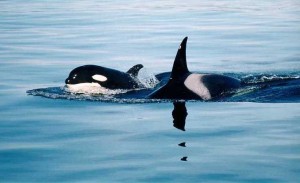The Girl Effect
They say write about what you know. That’s tough, because I don’t know what it’s like to be a girl in the developing world. I’m trying to learn, because girls in the developing world hold the key to creating a better life for all of us. It’s called The Girl Effect.
I can’t think about The Girl Effect without thinking about my two best friends.
When I was 12, all I had to worry about was how to spend my afternoons with my two best friends. We spent our time at the farm where we lived and breathed horses. My friend’s mom had one of the best jobs on earth. She was a riding instructor, which meant we could have riding lessons and unlimited access to horses in exchange for doing chores around the barn. More than 20 years later, these amazing women are still my best friends and we all have or are pursuing advanced graduate degrees. One an environmental lawyer, the other now pursuing her MBA, and I’m finishing my PhD as a marine conservation biologist at the University of St Andrews. We were lucky.
While we certainly weren’t rich, we were definitely not living in poverty like 600 million adolescent girls in the developing world. We had the chance to cultivate friendships and draw upon these for support when we needed. We had the chance to play, pursue an education and now give back. The reality is, around a quarter of girls in the developing world are not in school. This is unacceptable.
Studies show that giving adolescent girls in the developing world the chance to thrive causes a RIPPLE EFFECT. When she receives seven or more years of education, she marries four years later and has 2.2 fewer children. Plus, when women and girls earn income, they reinvest 90 percent of it into their families,. (Men tend to reinvest only 30 to 40% of their income to their families.) And this goes on generation after generation. Educated mothers are likely to send their children to school.
This is going to sound a bit weird, but please bear with me. I study whale and dolphin families. My early love of animals and a supportive environment catalyzed my passion for biology, conservation of marine mammals and the math required to study whales and dolphins. Early on, I was captivated by killer whales, or orcas. At 18, I left home to go to university, but orcas live with their families for their entire lives. Maintaining the integrity of this close-knit social network is essential for their survival. Mothers teach their babies how to find fish, how to sing their family dialect and how to stick together in a storm. Siblings babysit for one another. Everyone shares fish with each other.

But, we’ve discovered that like The Girl Effect, it’s the young females who are the vital link in these societies. When aquariums go looking for new whales to capture, they often target these young females who have not had babies yet because they are smaller and have an entire reproductive lifetime ahead of them. But removing these young females from their families is one of the worst things you can do to an orca family and its population. It breaks their social network apart. Could The Girl Effect be universal?
I had the opportunity to go to school and study biology so I can be a part of these amazing discoveries about whales and dolphins. Every girl should and can have the opportunity to go to school and make her own choices.
What can you do? Watch this video to learn more then share. You can even write your own Girl Effect blog post by clicking here .
